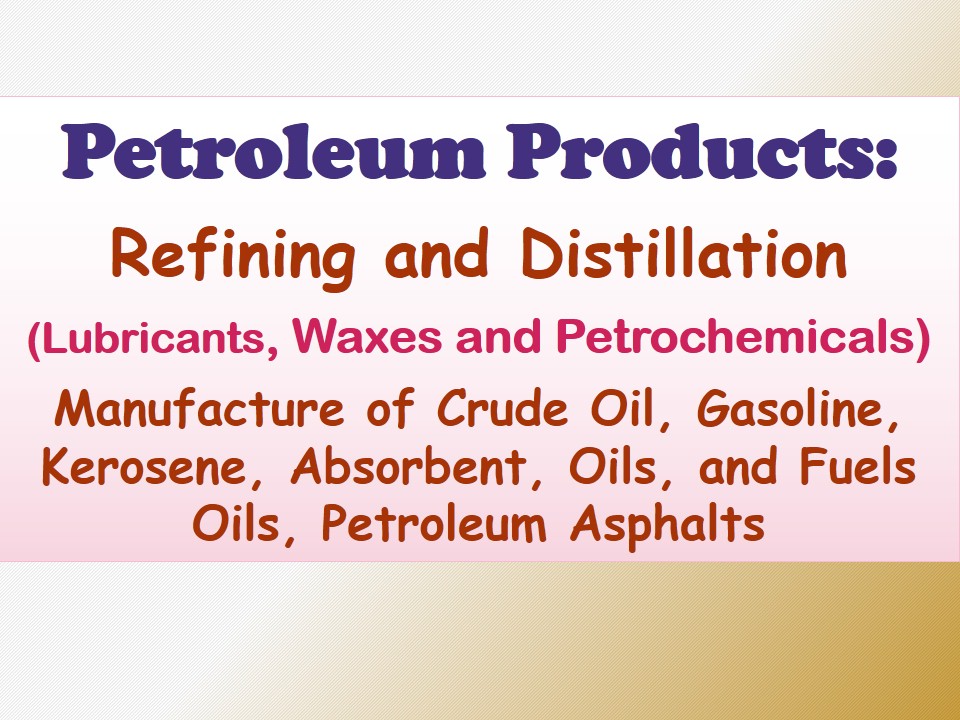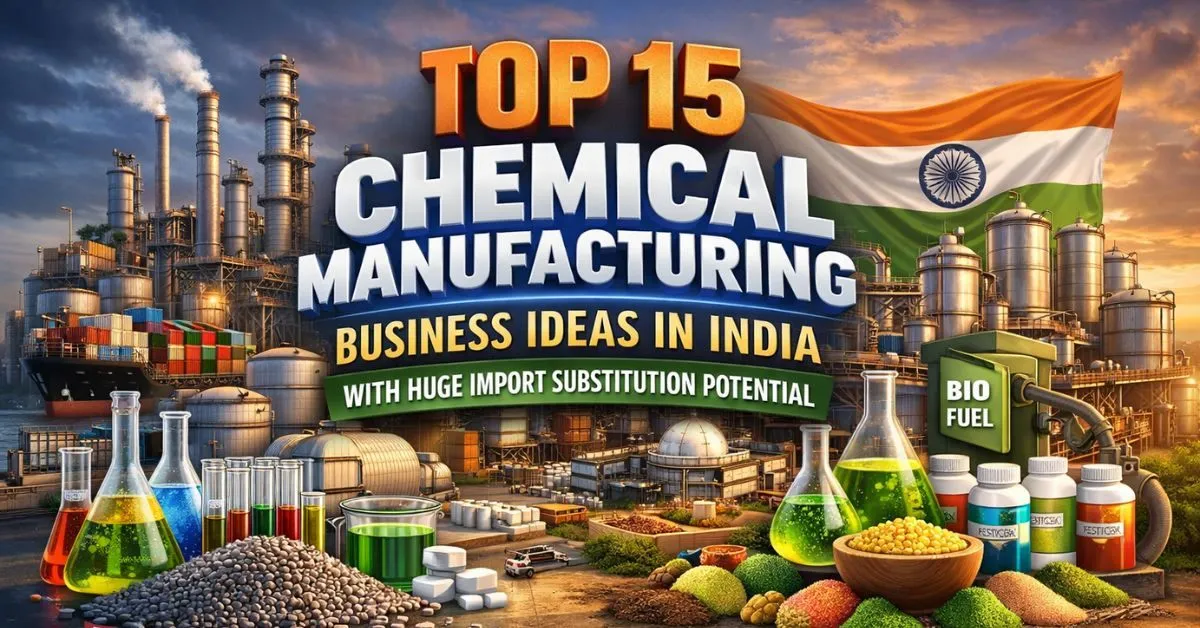
Petroleum products have become an indispensable part of modern life. From powering vehicles to manufacturing plastics, these products support nearly every major industry. Derived primarily through the process of crude oil refining, petroleum products form the base of essential fuels, lubricants, chemicals, and raw materials for petrochemical production. Given the global demand and diverse applications, understanding the value chain of petroleum products offers strategic insight into one of the world’s most critical industries.
Contents
- 1 Overview of Refining and Petrochemical Processes
- 1.1 The Distillation of Crude Oil
- 1.2 Fuels: The Primary Output
- 1.3 Petrochemicals: Building Blocks of Modern Life
- 1.4 Lubricants and Waxes
- 1.5 The Rise of Environmental Standards
- 1.6 Global Trade and Economic Impact
- 1.7 Emerging Trends and Innovations
- 1.8 Challenges in the Petroleum Sector
- 1.9 Opportunities for Entrepreneurs and Investors
- 1.10 Sustainability and the Future Outlook
- 1.11 Conclusion
Overview of Refining and Petrochemical Processes
To begin with, crude oil refining is the core method for transforming raw fossil resources into usable petroleum products. The refining process separates hydrocarbons by boiling point through techniques like atmospheric and vacuum distillation. Each resulting fraction serves a unique industrial role.
See Also : Coconut Processing Unit
The Distillation of Crude Oil
Crude oil is initially heated in a furnace and passed into a distillation column. There, lighter fractions such as LPG, naphtha, and gasoline vaporize and rise to the top. Meanwhile, heavier components like diesel, kerosene, and lubricating oil settle toward the bottom. These products are then further treated or blended to meet market specifications.
Notably, catalytic cracking and hydrocracking increase yield efficiency by breaking down heavy molecules into lighter, more valuable ones. As a result, more gasoline and diesel can be produced from the same quantity of crude oil. Such innovations improve energy output and reduce waste.
Fuels: The Primary Output
Gasoline and diesel fuel dominate global consumption of petroleum products. Jet fuel, bunker fuel for ships, and liquefied petroleum gas (LPG) also play vital roles. With transportation accounting for a major share of energy use worldwide, these fuels support everything from personal vehicles to global logistics networks.
Additionally, specialty fuels such as aviation turbine fuel (ATF) and high-octane gasoline undergo rigorous refining to meet strict performance standards. Their consistent quality and energy density are critical for efficient operation in aerospace and high-performance engines.
Petrochemicals: Building Blocks of Modern Life
Once basic refining is complete, select fractions are directed toward petrochemical production. Naphtha and LPG are common feedstocks for petrochemical plants, where they are converted into ethylene, propylene, butadiene, and aromatics. These basic chemicals serve as precursors for polymers, synthetic rubber, detergents, solvents, and many consumer goods.
Ethylene and propylene, for instance, are polymerized into polyethylene and polypropylene—two of the most widely used plastics. Furthermore, paraxylene is transformed into polyester fibers and PET bottles. Clearly, without petroleum products, the textile, packaging, and pharmaceutical industries would be unable to function.
Lubricants and Waxes
In addition to fuels and chemicals, petroleum products include lubricants, greases, and waxes used in automotive, industrial, and household applications. Base oils are blended with additives to enhance performance, reduce friction, and extend equipment life. Paraffin waxes, meanwhile, are used in food packaging, cosmetics, and candle manufacturing.
Because these products offer stability and water resistance, they are preferred in environments requiring long-term performance. Furthermore, their formulations are constantly improved to meet environmental and operational standards.
The Rise of Environmental Standards
While petroleum products offer undeniable benefits, they are also associated with emissions, pollution, and carbon output. Therefore, the refining industry has made substantial efforts to reduce sulfur content, improve fuel economy, and recover byproducts. In fact, catalytic reforming and hydrotreating help remove impurities and enhance octane levels.
Moreover, many modern refineries have adopted energy recovery systems, advanced sensors, and emissions monitoring to comply with global environmental norms. Consequently, petroleum products have become cleaner and more efficient than ever before.
Global Trade and Economic Impact
Due to its central role in global commerce, the petroleum sector significantly influences economic and geopolitical decisions. Countries that possess large refining capacity or export petroleum products often wield considerable influence on world markets. Likewise, price fluctuations in crude oil can impact inflation, currency stability, and trade balances.
Regions such as the Middle East, North America, and parts of Asia lead the market in crude oil processing. However, emerging economies are investing in new refineries and petrochemical complexes to reduce import dependency and fuel industrial growth.
Emerging Trends and Innovations
Despite increasing interest in renewable energy, petroleum products are expected to remain relevant for decades. Hybrid technologies, cleaner-burning fuels, and integrated refining-petrochemical setups are making the sector more sustainable.
Another promising development is the use of bio-feedstocks in traditional refineries. By co-processing vegetable oils and waste oils with crude, refiners can produce renewable diesel and jet fuel while using existing infrastructure. This innovation not only extends refinery life but also aligns with green energy goals.
Digital transformation is also reshaping the petroleum sector. Artificial intelligence, predictive analytics, and automation help streamline refinery operations and reduce energy use. As a result, production has become safer, more efficient, and less labor-intensive.
Challenges in the Petroleum Sector
However, several challenges confront the petroleum industry. These include fluctuating crude prices, geopolitical instability, regulatory compliance, and the transition toward decarbonization. Refiners must constantly adapt to changing fuel standards, safety requirements, and market expectations.
Moreover, public perception around fossil fuels is shifting, prompting companies to invest in carbon capture, emission reduction, and alternative fuel research. Thus, while petroleum products remain vital, the path forward requires agility, innovation, and environmental responsibility.
Opportunities for Entrepreneurs and Investors
Given its size and complexity, the petroleum sector offers a wide range of opportunities for entrepreneurs. From setting up mini-refineries to manufacturing downstream petroleum products like lubricants, adhesives, and plastics—several viable options exist.
Moreover, businesses focused on maintenance, pollution control, and refinery automation are in high demand. Investment in storage tanks, transportation infrastructure, and specialty chemicals also holds strong potential. Startups that develop eco-friendly additives, synthetic lubricants, or biodegradable packaging from petrochemicals can tap into niche but growing markets.
Even educational and training services in petroleum technology present attractive business models. Therefore, entrepreneurs willing to innovate within the petroleum products sector can build long-term, profitable ventures.
Sustainability and the Future Outlook
In the long run, the industry’s sustainability will hinge on how well it integrates with clean energy systems. Blending biofuels, utilizing hydrogen, and implementing carbon capture and storage (CCS) will shape the next generation of petroleum products.
International agreements and net-zero commitments are influencing corporate strategies. Many major oil companies now allocate substantial R&D budgets toward green technologies while maintaining a focus on high-margin petroleum products.
Hence, the road ahead lies in balancing traditional energy needs with a responsible environmental footprint. By prioritizing cleaner processes and smarter resource utilization, the petroleum industry can remain relevant and resilient.
See Also : Coconut Processing Unit
Conclusion
Petroleum products form the backbone of global industry, from fuels and lubricants to plastics and chemicals. With advancements in refining, a growing demand for petrochemicals, and improved environmental practices, the industry continues to evolve. Despite challenges, it offers immense opportunity for growth, innovation, and investment. As the world moves toward a cleaner future, the strategic development and responsible use of petroleum products will play a key role in shaping modern economies.














